April 26, 2024 | 23:21 GMT +7
April 26, 2024 | 23:21 GMT +7
Hotline: 0913.378.918
April 26, 2024 | 23:21 GMT +7
Hotline: 0913.378.918
The year 2023 proves to be a particularly exhilarating period for Vietnam's agricultural industry, marked by a series of significant international events and the signing of numerous protocols and cooperation agreements. Contributing to the prosperity of the agricultural sector amid the overarching challenges of the global and domestic economy is imperative, necessitating active engagement in international and high-level cooperation, akin to agricultural diplomacy.
Taking stock of the overall landscape, as well as upcoming programs and directions, Vietnam Agriculture Newspaper recently interviewed Mr. Nguyen Do Anh Tuan, Director of the Department of International Cooperation (Ministry of Agriculture and Rural Development), shedding light on the intricate facets of international cooperation in Vietnam's agricultural sector in this new era.
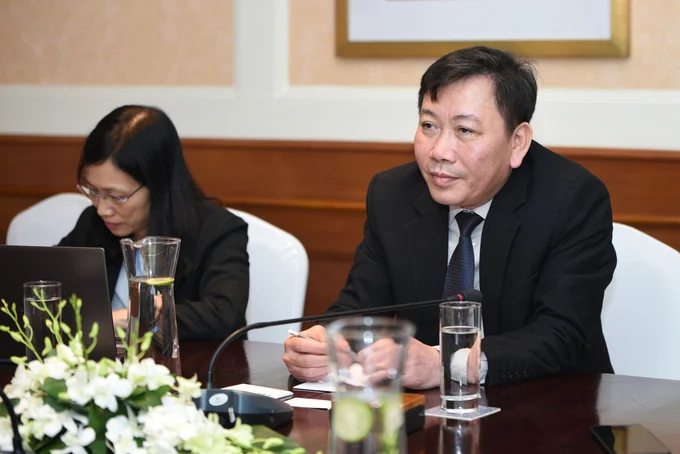
Mr. Nguyen Do Anh Tuan, Director of the Department of International Cooperation (Ministry of Agriculture and Rural Development), in a session with FAO at the 4th global conference of the Sustainable Food Systems Programme. Photo: Tung Dinh.
In 2023, a multitude of protocols, cooperation agreements, and trade exchanges are slated to be inked following bilateral visits and working sessions between the Ministry of Agriculture and Rural Development and its counterparts in other nations. How, in your view, has international cooperation played a role in supporting market expansion and fostering trade between Vietnam and international markets?
Reflecting on the achievements of the agricultural sector in 2023, my predominant sentiment is one of joy and pride, with international cooperation playing a pivotal role. Despite the challenges of the year, including the post-Covid-19 economic downturn, high inflation, diminished purchasing power, supply chain disruptions, and intricate geopolitical conflicts, Vietnamese agriculture has not only maintained its export achievements but has also witnessed growth, boasting a turnover exceeding 53 billion USD.
This year, our commitment to international collaboration remains steadfast, as we actively engage in negotiations for a series of new-generation free trade agreements (FTAs). Notable among these are the ongoing discussions surrounding the ASEAN-Canada FTA, the enhancement of the ASEAN-China FTA, and the Indo-Pacific Economic Framework (IPEF). Additionally, we are exploring the prospect of negotiating a comprehensive economic agreement between Vietnam and the UAE, and also contemplating an upgrade to the ASEAN-China Free Trade Agreement (ACFTA).
Simultaneously, the entire industry is diligently implementing the 19 FTAs in which Vietnam is a participant, with 15 already in effect. Among these, pivotal agreements include the Vietnam Free Trade Agreement with the EU (EVFTA), the Comprehensive and Progressive Agreement for Trans-Pacific Partnership (CPTPP), the Regional Comprehensive Economic Partnership (RCEP), and the Vietnam-UK Free Trade Agreement (UKVFTA).
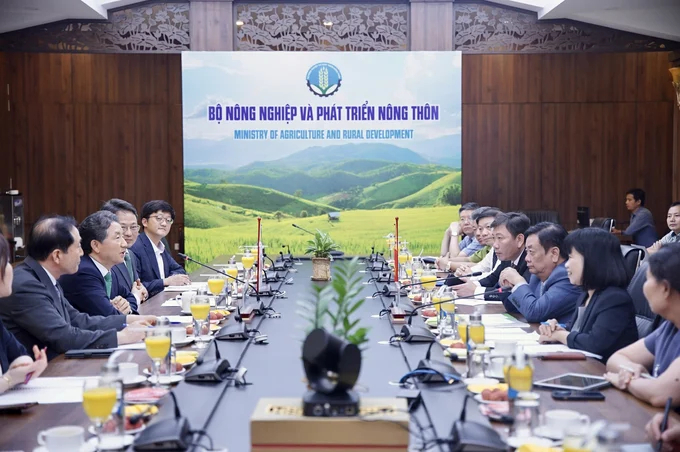
A noteworthy development is the meeting between Minister Le Minh Hoan and Minister of the Korean Forestry Agency, Nam Sung Hyun. Photo: Linh Linh.
Equally important is the active involvement of localities, businesses, and the responsive engagement of farmers to ensure compliance with the stringent standards set by these new-generation FTAs. Notably, we are gearing up to enter high-end and demanding markets, with a primary focus on the EU market following the effective implementation of the EVFTA.
The market liberalization has already yielded positive and tangible impacts on AFF exports, particularly evident in the outstanding performance of fruit and vegetable exports in 2023, with durian exports to China being especially noteworthy. Concurrently, our concerted efforts and proactive approach in addressing export-related challenges, such as providing timely market information, participating in the resolution of AFF trade disputes, and efficiently managing export congestion, position us well to capitalize on opportunities and navigate the challenges of the global market.
This solid foundation will empower Vietnam to further deepen its trade and investment ties with traditional partners while simultaneously fostering the expansion and diversification of exports to potential markets in the Middle East, South Asia, Southeast Asia, Africa, and Latin America in the medium and long term.
In recent times, Vietnam's agricultural sector has undergone a strategic shift towards green, sustainable, and responsible practices, aligning with Vietnam's international commitments to reduce greenhouse gas emissions and embrace a net-zero and environmentally conscious growth model. To foster this transformation, what measures should be taken in the near future to attract foreign investors and businesses willing to support Vietnam's agricultural sector in embracing this green direction?
At the highest echelons, Vietnam is steadfastly moving towards a robust transition to a green, low-emission economy, as articulated in the President's statement at the 2021 United Nations Food System Summit. The vision is for Vietnam to emerge as a transparent food supplier, demonstrating responsibility and sustainability.
To actualize this vision, the agricultural sector has swiftly formulated and presented to the Government for approval a comprehensive strategy for sustainable agricultural and rural development up to 2030, with an overarching vision extending to 2045. This includes action plans for green growth and the transformation of the food system towards transparency, responsibility, and sustainability. Initiatives such as the 1 million hectares of high-quality, low-emission rice program, intricately tied to green growth in the Mekong Delta, underline the sector's commitment to these objectives.
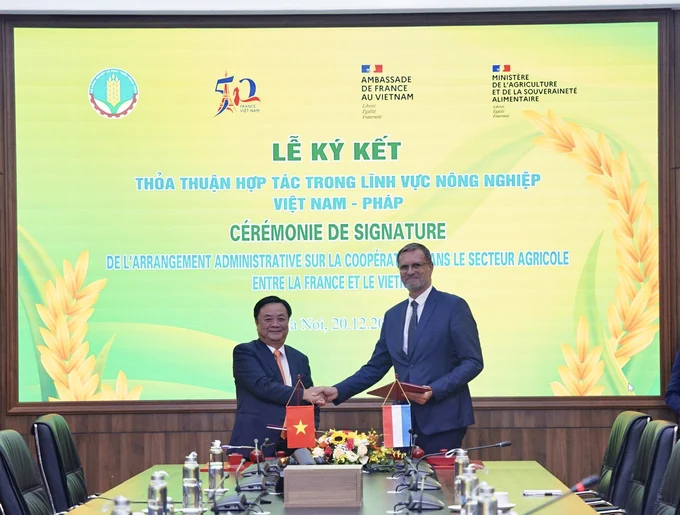
Signing ceremony of cooperation agreement in agriculture between Vietnam and France in mid-December 2023. Photo: Linh Linh.
Vietnam's dedication to these commitments and its proactive steps have garnered robust support from international partners. Various technical assistance and non-refundable aid projects have been initiated by international collaborators, focusing on the development and preservation of forests, bolstering the capacity of protected areas and national parks, and fostering livelihoods based on resource conservation and biodiversity. These projects also extend support to farming practices aimed at reducing emissions and connecting to the carbon credit market.
Notably, Vietnam has been selected by the World Economic Forum (WEF) as one of the first three countries to pioneer the establishment of a Food Innovation Network. This network, intertwined with digital transformation and green initiatives, exemplifies Vietnam's leadership and commitment to innovation in agriculture on the global stage.
Translated by Quynh Chi

(VAN) Pet treatment and beauty spas need skilled expertise and experience to manage their aggressive responses, like as biting.
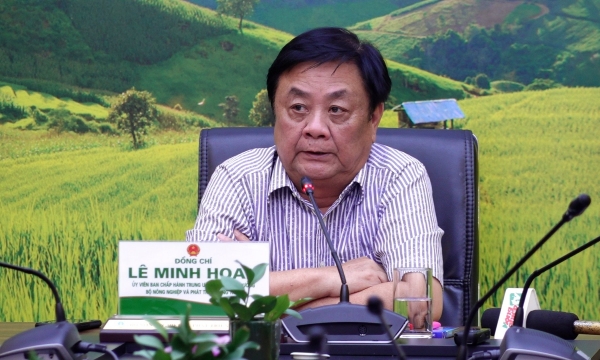
(VAN) Minister of Agriculture and Rural Development Le Minh Hoan chaired a conference on April 25 to discuss measures for preventing drought and saltwater intrusion in the Mekong Delta and addressing future difficulties.
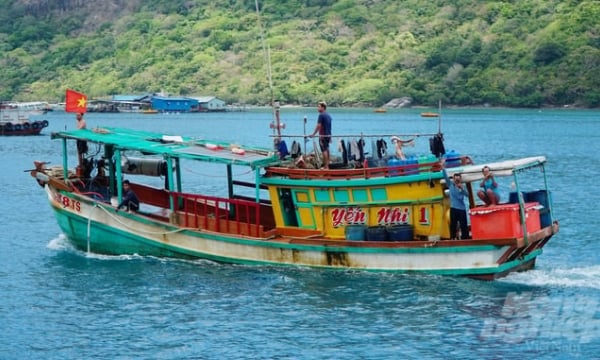
(VAN) 'The IUU yellow card must lead to sustainable fisheries, with increased aquaculture and reduced exploitation,' Minister Le Minh Hoan reflected.
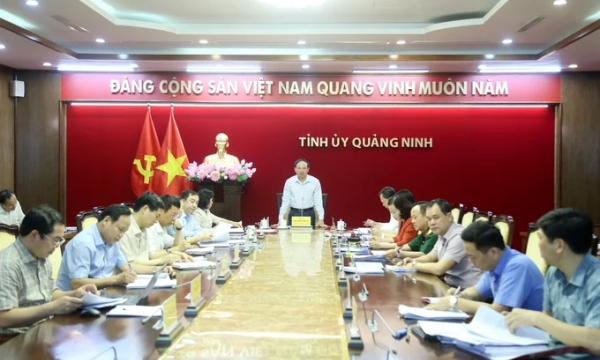
(VAN) Quang Ninh's policy of attracting FDI investment will select investors, taking quality, efficiency, technology, and environmental protection as evaluation criteria.
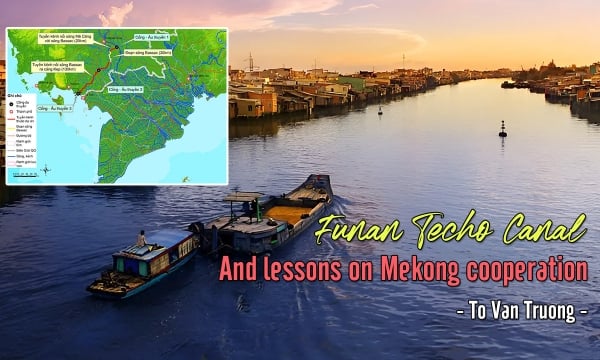
(VAN) Concerns regarding the Funan Techo canal, as expressed by certain experts at the Can Tho meeting, are indeed reasonable, yet they should be articulated without exaggeration.
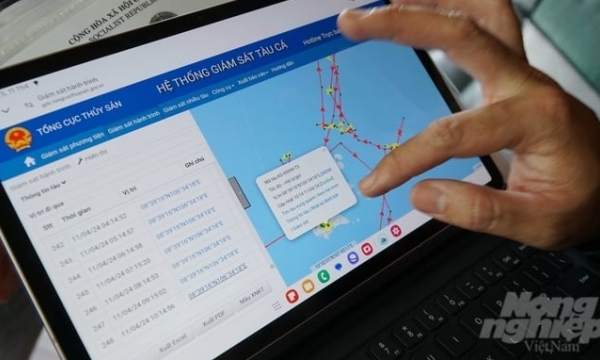
(VAN) Ba Ria - Vung Tau province is facing considerable challenges concerning the rapid and coordinated implementation of electronic fishing logbooks and origin tracing.
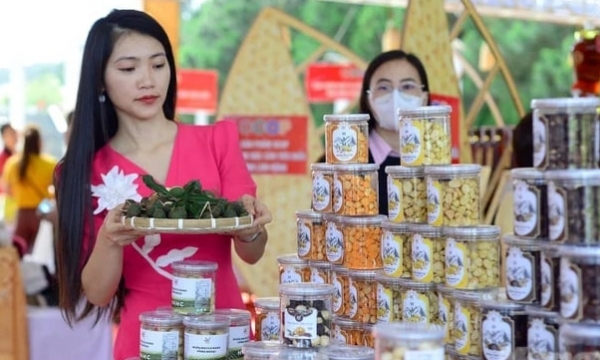
(VAN) There are a total of 12,000 OCOP products rated as 3-star or above, over 6,500 OCOP entities, around 78% of communes have successfully met the new rural requirements.